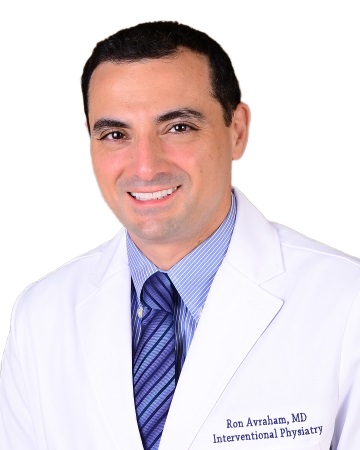A physical medicine and rehabilitation physician, Dr. Ron Avraham is one of University Orthopedics’ latest additions to its staff. Avraham, a graduate of Rutgers New Jersey Medical School in Newark, N.J., completed his physical medicine and rehabilitation residency at Temple University/Moss Rehab in Philadelphia, and a fellowship training in interventional pain at Arizona Pain Treatment Centers in Phoenix.
Avraham sees patients at the practice’s Massachusetts locations in Plymouth and Raynham. He discusses the field of pain treatment, the advantages of nonsurgical and minimally invasive treatment options, and the importance of personalized care.
PBN: What are some of the methods you use to treat patients suffering from pain?
AVRAHAM: My background is in physical medicine and rehabilitation. As such, I approach patient care with the goals of improving function and quality of life.
My focus is to employ primarily nonsurgical treatment options, including physical therapy, oral medications as needed, various modalities such as the use of a TENS unit and image guided injections such as steroid injections, nerve blocks and regenerative medicine injections to help advance the care of my patients.
I am a firm believer that arriving at the correct diagnosis will lead to the best outcome and I work with the patient to make sure we can determine the source of their pain.
PBN: What are some of the advantages to using minimally invasive, nonsurgical treatment options?
AVRAHAM: In my experience, fortunately many of the patients I have treated for musculoskeletal pain have been able to find relief with nonsurgical management. By utilizing treatment options such as physical therapy, we are able to address biomechanical factors that, left unchecked, may lead to recurring or progressive pain. When appropriate, I utilize injections to help provide relief of pain and associated symptoms, reduce inflammation and improve function. These are often done as a complement to other treatments such as physical therapy and massage therapy.
Patients are able to experience relatively quick relief of their symptoms with short to minimal recovery times and with little risk depending on the treatment they undergo. This allows them to return to the activities they enjoy without a lengthy delay or waiting period.
An additional advantage that I find with the use of image guided injections is the diagnostic utility they offer, which allows us to confirm that the area being treated is responsible for the patient’s symptoms.
PBN: Are there any exciting technological innovations in the field of pain treatment you have seen in the last few years?
AVRAHAM: I feel fortunate to be practicing in a time and place where medical and technological advancements have deepened our understanding of pain management, the musculoskeletal system and spine care. Developments and ongoing research in the field of regenerative medicine allows us to provide patients with treatments that can replace, repair and regenerate human cells and tissues with minimal risk and short recovery periods. In particular, I am excited about the use of platelet rich plasma and bone marrow aspirate concentrate in treating musculoskeletal conditions.
Advancements in imaging such as ultrasound for procedures has enabled me to perform procedures at bedside accurately and safely. Ongoing developments in the field of neuromodulation and the discovery of novel pharmaceutical agents will allow us to provide a wider range of treatments for patients suffering with chronic pain.
PBN: What made you decide to join University Orthopedics, and in particular the Plymouth location?
AVRAHAM: I have been in practice since 2015 and for the last four years I have primarily seen patients in Plymouth. My wife and I have found Plymouth to be a wonderful place to raise our family. Beyond my practice, I was fortunate to have the opportunity to engage with the community while serving on the Plymouth Board of Health as we navigated through the COVID crisis.
With University Orthopedics, I had an incredible opportunity to join a prestigious organization that shares my values and focus on providing the highest quality of patient care. In particular, I appreciate the investments made by University Orthopedics in our Plymouth location, which allows us to provide cutting-edge and minimally invasive treatments to the residents of Plymouth and the south shore.
PBN: Why is customized treatment for individual patients important? How does it change the patients’ experience?
AVRAHAM: Each patient has a unique story and background and I do not believe in a one-size-fits-all approach. They know their body and can tell when something is not right. As a physician, I’ve learned that I achieve the best outcomes when patients are fully engaged with the therapeutic process. Working with the patient, we formulate a treatment plan that takes into account the patient’s preferences, goals, limitations and schedule.
Depending on the circumstances, we tailor the treatments offered, including the use of therapy such as formal physical therapy and home exercise programs, oral and topical medications, image guided ultrasound and X-ray guided injections and the use of alternative medicine to best fit the needs of the patient. I strive to provide patients with a variety of treatment options and work with them to identify and follow through on the option they feel the most comfortable with.
Claudia Chiappa is a PBN staff writer. You may contact her at Chiappa@PBN.com.













